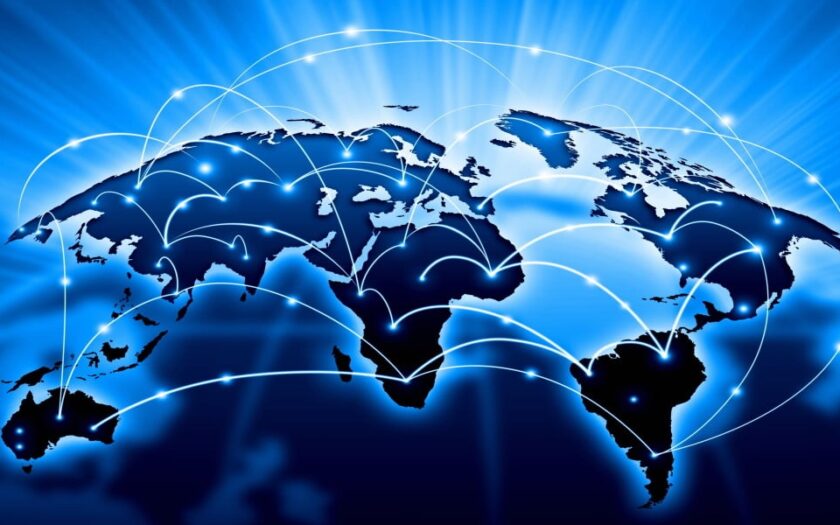Globalization is the process of interaction and integration among people, companies, and governments worldwide. The term globalization first appeared in the early 20th century and developed its current meaning sometime in the second half of the 20th century, and came into popular use in the 1990s to describe the unprecedented international connectivity of the post–Cold War world.
Globalization means the interconnectedness of goods, services, finance, ideas, people in their movement, geopolitics and the interaction of nation states.
During many epochs, global scale change, changes in technology, changes in governance, changes in politics have affected the whole world.
It is agreed/found out that are 6 waves of globalization:
The first of these is the beginning of humanity, what might be called the great dispersal of homo sapiens, our species, out of Africa and spreading throughout the whole world.
The second globalization is the Neolithic Revolution. We began as hunters and gatherers, but around 10,000 years ago, an increasing proportion of humanity became sedentary farmers. And that was the so-called Neolithic Revolution, from hunting and gathering to agriculture, from a nomadic life to a settled life in villages, and then eventually in towns, and eventually in cities.
The third globalization are the great land based empires of roughly two millennia ago. The Han Empire in China, the Roman Empire in the Mediterranean region. And the trade in between. And of course other large land-based empires of that age.
The fourth globalization is the beginning of the modern world that we know today, it’s the globalization that took place with the discoveries of Christopher Columbus on the sea route from Europe to the Americas and Vasco da Gama on the sea route between Europe and Asia, which connected all parts of the world through ocean navigation. And that led to profound changes in geopolitics, in the world economy, in ideas and in many ways it was one of the most tumultuous eras and events of human history.
The fifth globalization is the Industrial Age. Note that it’s also the Anglo-American age. It’s the period when first, the United Kingdom and then after World War II, the United States, were the dominant powers of the world and really shaped the world institutionally, in language, in the use of English as the common language for business and science throughout the world in knitting together the modern, highly integrated world economy that we live in today.
And the sixth and final of these waves of globalization it is the globalization that is underway today. It’s a new globalization, after the Anglo-American period in which we have yet another geopolitical environment. A new technological age. The age of information.
What are the fundamental patterns or drivers of global scale change that affect the dynamics of innovation and diffusion?
Technology:
The ability to use, invent and use tools to produce goods and services, to fight wars, to cure disease and to address other human needs. Technological change through innovation and diffusion is without question one of the fundamental drivers of global scale change in any era.
The physical environment:
This of course, creates literally the channels, the pathways, the mountain passes through which technology and change occur. These patterns are profoundly determined by climate. And so the physical climate, the topography, the mountains, the access to navigable rivers,the disease epidemiology shaped by climate, the availability or absence of wood for building all kind of structures are important drivers for globalization.
Demography:
This is a key shaper of global change. Where are populations growing, where are populations declining? Where are populations young, dynamic, on the move, where are populations older and perhaps less dynamic? Where are populations moving into cities, urbanization, where are they concentrated in rural areas? Where are the sources of out-migration, where are the receiving countries for in-migration?
War:
This is a fundamental part of human history and a fundamental driver of change. War is destructive without question, but it is also an agent of technological innovation.
Ideology:
Revolutionary fervor is another major driver of global scale change. Religion became a vehicle of global change, it became a carrier of new concepts, of statecraft,and also it created a civilization in which ideas, scientific and other ideas would diffuse.
Political institutions:
How we organize and manage power within our societies.
Cultural institutions:
How we view our place in the cosmos are fundamental.
More periods of globalization are expected to come.
A very good course on globalization can be found at edX: Globalization, past and future by Prof. Sachs.


